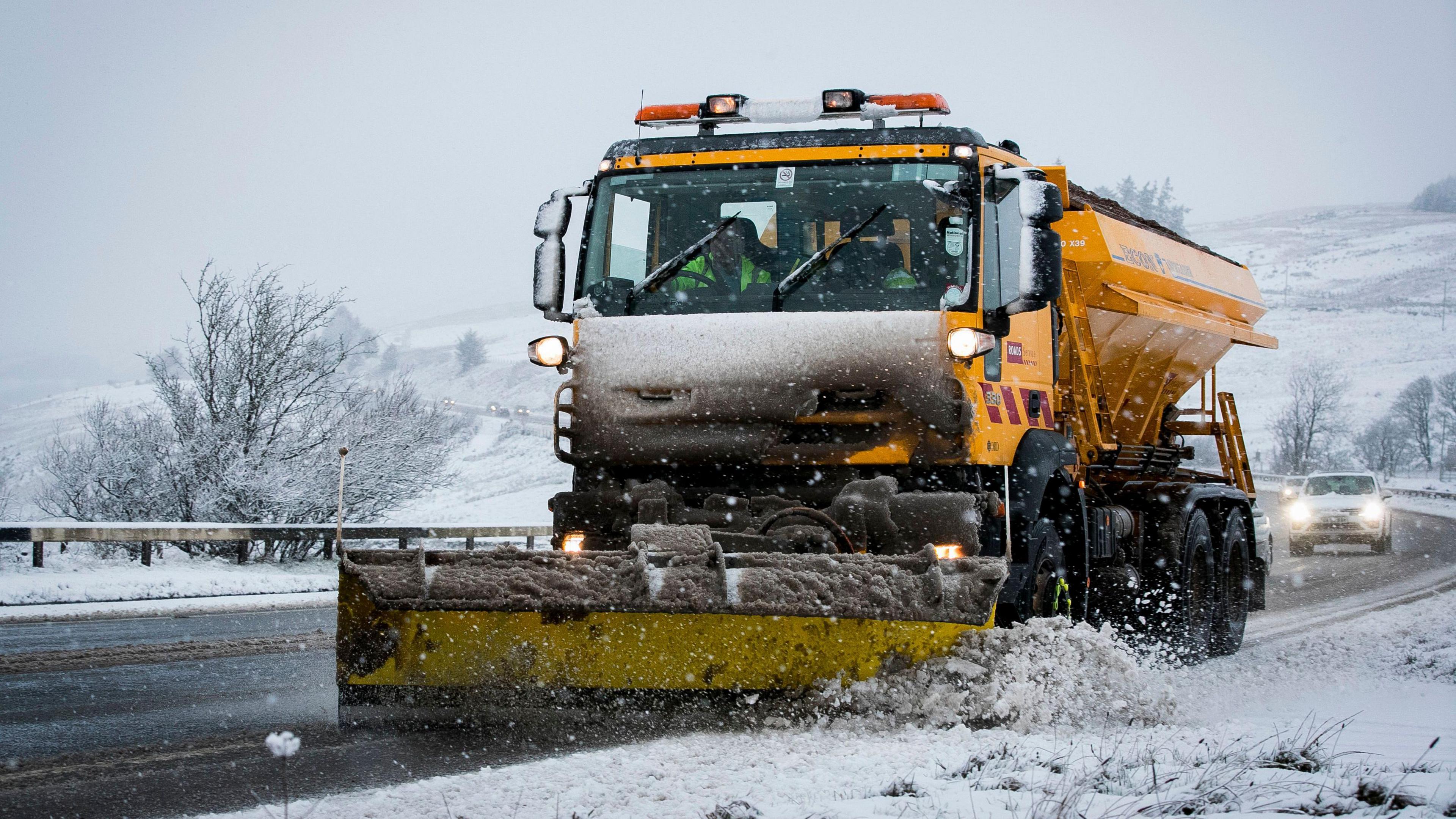Winter plan aims to better protect district roads

More than 7,800 tonnes of salt was used on priority routes in the Bradford district in 2023
- Published
Electric gritters and thermal imaging techniques could be part of a new plan to protect Bradford's roads from snow and ice damage.
Creating a gritting map of the city using surface temperature sensors, upgrading weather stations and building a large "salt barn" for storage is also being considered to prepare the district for winter.
The action plan, which is yet to be formally considered by Bradford Council, would also attempt to reverse a £700,000 overspend in the service in 2023.
Councillor Alex Ross-Shaw, the council’s executive member for regeneration, planning and transport, said the move could provide a “huge step forward” if financially workable.
Despite a relatively mild winter in 2023, a meeting on Tuesday heard it still proved expensive for taxpayers.
"We spent £1.7m against a budget of just under £1m," said Richard Gelder, the authority’s highways services manager.
More than 7,800 tonnes of salt was used on priority routes in the district in 2023, covering 712 miles, according to a council report.
The district's highways service has a maximum of 25,500 tonnes of salt in stock at the start of the winter season, however about 15% is lost to weather erosion as its storage is open to the elements.
This equated to an estimate financial loss of about £162,000, the report said.
A meeting heard last year's winter season was relatively mild but still ended up being costly for taxpayers
Mr Gelder said the proposals were partly in response to “changing weather trends”, with recent wetter winters resulting in a reduced demand on salt stocks.
Discussing the storage of salt, Mr Gelder said: “We want to look at how we store it under cover, possibly using a salt barn."
He described local weather station technology as "out of date" and requiring a "major upgrade".
Mr Gelder continued: "We also want to look at the use of surface temperature ground sensors, which give us greater visibility of what the weather conditions are actually like on the network.
"This will allow us to potentially move to more targeted treatment next year.”
The council's executive approved the preparation of a business plan to formally consider the new options.
Mr Ross-Shaw said winter planning was a “front-facing service” and “not easy work for teams going out in high winds and snow”.
“We appreciate that and residents do too,” he said.
The new plans could “bring significant efficiencies if financially viable”, he added.
Listen to highlights from West Yorkshire on BBC Sounds, catch up with the latest episode of Look North or tell us a story you think we should be covering here, external.